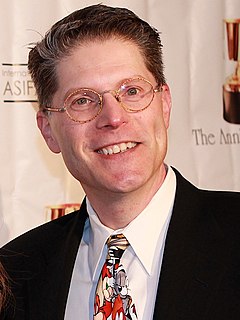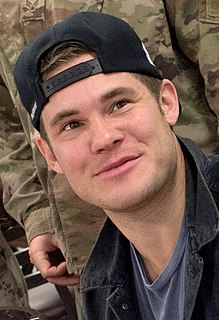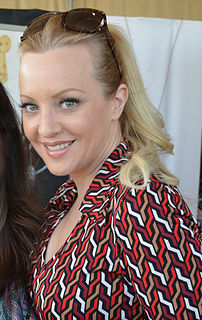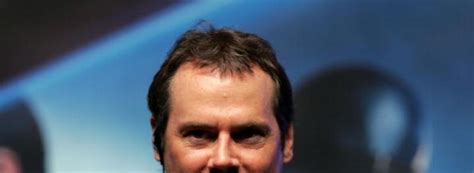A Quote by Amy Poehler
If you do a scene and you really like a character in it or a premise in it to write it down and to work on it so that you can have five or six characters that you can pull out in an audition.
Related Quotes
What I do is give Ennio Morricone suggestions and describe to him my characters, and then, quite often, he'll possibly write five themes for one character. And five themes for another. And then I'll take one piece of one of them and put it with a piece of another one for that character or take another theme from another character and move it into this character.... And when I have my characters finally dressed, then he composes.
The problem is there are so many stories out there where I can pull that superhero out, put any other superhero in, and the story works the same. For me, that's broken. I have to write a story that no one else but Aquaman or Shazam can be in, and as soon as you pull that character out and out someone else in, it doesn't work.
I really like the Chris-R scene and of course the "you are tearing me apart Lisa" scene. The reason I love the Chris-R scene is because we worked really hard to finish it. It's not just that though, it brings people together. Everyone is one the roof together by the end of the scene. You see the perspectives of the different characters. I feel like with all the connections in this scene that the room connects the entire world
Improv is more than just spitting out a bunch of funny stuff that's unrelated to the material. You have to stay in character, you have to react and respond as the character you're trying to play. You have to service the story, and I think improv training has helped with my listening, responding, and my audition technique. It's sounds so silly, but it's true. Because not only do you improvise during the audition, but once you get the part, they'll say, "Throw away everything. Just improv this scene. Do whatever you want." Someone could panic if they're not used to doing something like that.
To go in the direction that I went takes a lot of work. And I don't think you can do the work - the five or six hours of working out a day - if you don't have a clear goal or know why you're doing it. If you just hang out at the gym and train for five or six hours a day without a goal is almost impossible.
It's never really fun to have to cry in a scene, or anything like that. I just try to put myself in the characters position, and that helps. It's never really fun, but at the same time, if you're having a really bad day, it's a great way to get out all of your frustration by doing a really angry or sad scene. That's always a good release.


































